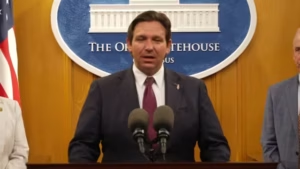Polish Prime Minister Donald Tusk recently announced a temporary suspension on the right to apply for asylum for migrants entering Poland from Belarus. This decision follows President Andrzej Duda's endorsement of a controversial bill aimed at enhancing border security, sparking condemnation from human rights organizations.
**Poland Temporarily Suspends Asylum Applications for Migrants from Belarus**

**Poland Temporarily Suspends Asylum Applications for Migrants from Belarus**
Poland's new law halts migrants' asylum requests to bolster border security amidst rising tensions.
Polish Prime Minister Donald Tusk has declared that his administration will pause the right of migrants arriving at Poland's border with Belarus to apply for asylum. This decision was made following the signing into law of a bill that permits Polish authorities to enforce this suspension for a maximum of 60 days. Tusk emphasized the government's intent to act swiftly on this law, citing heightened security needs along the border.
President Duda supported this legislative action by stating that it was essential for fortifying national security. However, this move has drawn sharp criticism from various human rights organizations, such as Human Rights Watch, which has warned that the implementation of this law could conflict with Poland's international and European Union obligations. They have called for parliamentary rejection of the bill, arguing it could ultimately lead to a near-total closure of the Poland-Belarus border where abusive pushbacks have already been reported.
The Polish government has indicated that this suspension would primarily target individuals posing a threat to state security, particularly those part of aggressive groups seeking to illegally cross the border. Notably, exemptions will be made for vulnerable populations, including unaccompanied minors, pregnant women, the elderly, and those facing serious harm if deported, as well as citizens from nations accused of exploiting migration, such as Belarus.
In response to criticisms from human rights advocates, Tusk asserted that the measures were not an infringement on human rights or the right to seek asylum, but rather a legal response to organized groups attempting to breach the border under the influence of Belarusian leader Alexander Lukashenko.
Since 2021, the number of illegal crossings from Belarus and Russia into neighboring countries like Poland, Lithuania, and Latvia has surged. In an effort to manage this crisis, Poland has increased military and border police presence along its frontier and constructed a 5.5-meter-high fence along 186 kilometers of border. Tragically, rights groups have reported more than a hundred deaths along the borders since the proliferation of these tensions began.
Countries on the EU's eastern flank, as well as the European Commission, have accused both Belarusian and Russian authorities of using migration as a weapon to destabilize the European Union.
President Duda supported this legislative action by stating that it was essential for fortifying national security. However, this move has drawn sharp criticism from various human rights organizations, such as Human Rights Watch, which has warned that the implementation of this law could conflict with Poland's international and European Union obligations. They have called for parliamentary rejection of the bill, arguing it could ultimately lead to a near-total closure of the Poland-Belarus border where abusive pushbacks have already been reported.
The Polish government has indicated that this suspension would primarily target individuals posing a threat to state security, particularly those part of aggressive groups seeking to illegally cross the border. Notably, exemptions will be made for vulnerable populations, including unaccompanied minors, pregnant women, the elderly, and those facing serious harm if deported, as well as citizens from nations accused of exploiting migration, such as Belarus.
In response to criticisms from human rights advocates, Tusk asserted that the measures were not an infringement on human rights or the right to seek asylum, but rather a legal response to organized groups attempting to breach the border under the influence of Belarusian leader Alexander Lukashenko.
Since 2021, the number of illegal crossings from Belarus and Russia into neighboring countries like Poland, Lithuania, and Latvia has surged. In an effort to manage this crisis, Poland has increased military and border police presence along its frontier and constructed a 5.5-meter-high fence along 186 kilometers of border. Tragically, rights groups have reported more than a hundred deaths along the borders since the proliferation of these tensions began.
Countries on the EU's eastern flank, as well as the European Commission, have accused both Belarusian and Russian authorities of using migration as a weapon to destabilize the European Union.





















